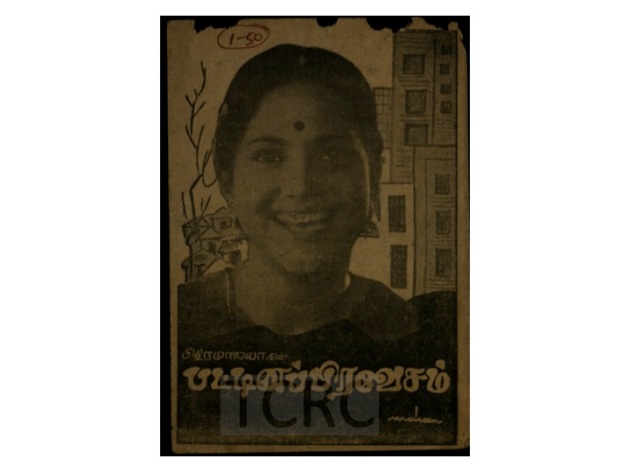By Karthik Bhatt
In this article of From Stage to Celluloid we look at the drama Patinapravesam which was later made into a film by K. Balachander.
The 1960s ushered in a new dawn on both Tamil stage and celluloid, with social themes gaining prominence. The 1970s and the 1980s were truly the heydays of this genre. MR Viswanathan, or Visu as he was popularly known was one of the most successful writer-directors of this era. His themes predominantly revolved around problems faced by the middle class families and most of them were commercial successes. Some of them are frequently re-aired on television channels to this day. His foray into cinema was through Tamil theatre and many of his creations on stage were made into films.
Visu’s first play in the official stage circuit was “Deviyar Iruvar”, written for Vani Kala Mandir in 1972. It was directed by AR Srinivasan (ARS) and had actress Sachu playing a key role. Visu was also associated as an actor with YG Parthasarathy’s UAA. Much later, he started his own troupe, Viswasanthi.
Kathadi Ramamurthy, who began his career on stage at the beginning of the social era remains one of Tamil stage’s most recognisable faces. Making his debut as one of the founding members of the legendary Viveka Fine Arts, he launched his own troupe, Stage Creations in 1965 with Shivaji Chaturvedi, TD Sundararajan and Bobby Raghunathan. Visu wrote four plays for Stage Creations and remarkably, all of them were remade as movies. This piece is about the most popular amongst them.
Visu’s first play for Stage Creations was Dowry Kalyana Vaibhogame (Dowry Kalyanam on celluloid), which as the name suggests dwelt upon the social evil of dowry. “The play was first written for V Gopalakrishnan, who did not take it up for some reason. Visu then narrated the script to me. I agreed to stage it, provided he directed the same”, says Kathadi Ramamurthy. It marked Visu’s debut as a director.
Dowry Kalyana Vaibhogame was followed by Pattinapravesam. The play revolved around a family comprising five siblings (four brothers and a sister) and their aged mother who migrate to Madras from their village in search of a better living and their travails in the city. With their fortunes wildly fluctuating and problems hounding them, they finally decide to return to the village. It is interesting to note that the plot of the play bore a resemblance to Conquerors of the Golden City, an Italian movie.
The play was a remarkable success. “I remember K Balachander watched the play three or four times, each time bringing along a celluloid star. The biggest compliment I cherish was that he said that it was remarkable that the same level of performance was sustained every time he saw the play, which would have been possible only it was a movie”, says Kathadi Ramamurthy. The movie was directedby K.Balachander , produced by R Venkataraman for Premalaya Films and was released in 1976. Notable actors who played roles in the movie were Sarath Babu, Jai Ganesh and Sivachandran. “Three of us from the play took up roles in the movie”, continues Kathadi Ramamurthy.
Today the movie is best remembered for being the celluloid debut of one amongst the three, Delhi Ganesh, who reprised the role of the eldest brother from the play and the melodious “Vaa nilaa nilaa alla un vaalibam nilaa” set to tune by MS Viswanathan. The popular magazine Ananda Vikatan gave a rating of 52/100 for the movie, a more than average score given its reputation for being tough reviewers and a score of 60/100 to Delhi Ganesh (the highest amongst all actors).
After a hiatus of more than three decades, Visu made a comeback to Tamil stage with Konjam Yosinga Boss in 2014.
Below is the cover image of the song book of the film Pattinapravesam from our archives.

